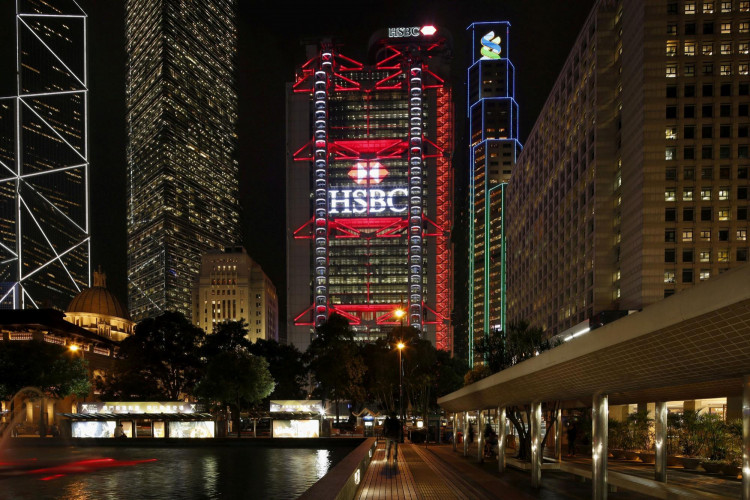JPMorgan Chase and HSBC have both committed to fulfill the Paris Agreement - promising to reach zero carbon emissions on investments by 2050.
The 2015 international pact signed in Paris is a commitment to keep world temperature increases to below 2 Celsius above pre-industrial levels. U.S. President Donald Trump withdrew the U.S. from the agreement in June 2017.
"As we enter a pivotal decade of change, we have a landmark opportunity to accelerate our efforts to build a healthier, more resilient and more sustainable future," said HSBC chief executive Noel Quinn in a statement.
The bank will provide up to $1 trillion in financing and investment over the next 10 years and plans to launch a $100 million philanthropic program "to scale climate innovation ventures, renewable energy and nature-based solutions" over a five-year period.
"Our net-zero ambition represents a material step up in our support for customers as we collectively work toward building a thriving low-carbon economy," Quinn said.
There was a similar declaration from JPMorgan Chase.
"Climate change is a critical issue of our time," the New York-headquartered bank's joint president Daniel Pinto announced late last week. "The goals set in the Paris Agreement are commendable and ambitious - but the world is not on track to meet them."
Pinto committed to "working with clients, policymakers and advocates to transition our economy and turn the goals of Paris into a reality."
The announcements are positive in an otherwise grim month for both banks - whose share prices took a beating from allegations of fraud and money laundering spanning two decades.
HSBC and JP Morgan were implicated earlier this month in the FINCen file leak, when thousands of documents detailing fraudulent and illegal transactions carried out at financial institutions around the world were released by a whistleblower.
"The files illustrate the alarming truth that...banks play host and facilitator to rogues and criminals," said Obama-era Treasury official Elizabeth Rosenberg in a recent interview with The Wall Street Journal.
The files show how HSBC sat on its hands while an $80 million Ponzi scheme was carried out by one of its clients, a China national named Ming Xu.
In a scam primarily targeting Asian and Latino communities in the U.S., Xu claimed to be running a cloud computing company called WCM777.
Regulators first warned HSBC of fraudulent activity associated with Xu in September 2013, but HSBC only moved to freeze Xu's accounts seven months later - by which time almost all the proceeds had been withdrawn. Victims numbering in the thousands collectively lost $80 million.
The failure to stop WCM777 reflects a deeper dysfunction in the financial crimes reporting system. HSBC submitted its first suspicious-activity report of a $6 million transfer into Xu's account in October 2013 and, over the following months, alerted regulators to more than $24.4 million in suspicious transfers.
For its part, the bank's financial crime compliance taskforce, once staffed by several hundred, now has more than 5,000 employees. And in the past year, HSBC filed nearly 50,000 suspicious activity reports with the Treasury Department.
Meanwhile, JP Morgan was found to be transferring hundreds of millions for money launderers in Venezuela, Malaysia and Ukraine.






